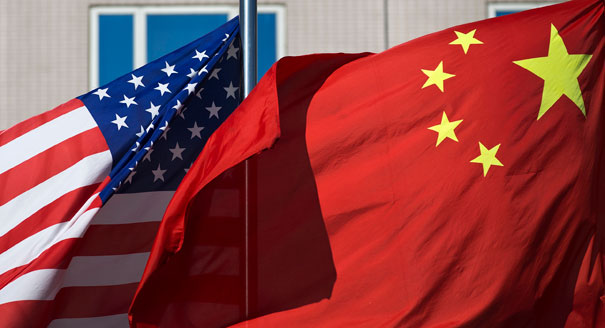

Follow us on:  
|

Latest

China has warned the US not to adapt protectionist measures to global trade [Image: Archives]
Officials in Beijing have called on the US to practice restraint on protectionist measures, and to comply with multilateral trade provisions.
“The US has launched over a hundred anti-dumping and countervailing measures on most imported steel and aluminum products, providing overprotection for its domestic products,” said Wang Hejun, head of the trade remedy and investigation bureau with the Ministry of Commerce, in a news release.
“If other countries follow the practice of the US, it will have a serious impact on international trade order.”
China’s steel comprises half of the world’s trade, but only two per cent of US imports.
There are fears that retaliatory measures taken by the EU and individual countries could quickly escalate into a major trade war.
“The imposition of a tariff like this will do nothing other than distort trade and ultimately, we believe, will lead to a loss of jobs,” Australian trade minister Steven Ciobo told reporters in Sydney.
South Korea, which is the third largest steel exporter to the US, said it was talking to US officials about an exemption from the 25 per cent tariff announced by Trump on Thursday.
But Moody’s ratings agency says the impact of the trade tariff on Asia will be minimal.
“In Asia, the direct economic effects at the macro level would be very small as exports of aluminum and steel to the US typically amount to less than 1 percent of gross domestic product (GDP) or exports,” Moody’s said in a research note made available to the media on Friday.
But Asian steel manufacturers fear that Asia may become saturated with steel should global players divert their attention away from the US and to developing countries like South Korea and Thailand, and other countries in Southeast Asia.
With excess steel in the markets, prices will drop and put a dent in these economies. The uptick is that steel may get cheaper for the consumer market.
The BRICS Post with inputs from Agencies

© 2017 BRICS Media Limited. All rights reserved. Registered in England and Wales. No.8133697. Registered office: Devonshire House 60 Goswell Road London, EC1M 7AD
57 founding members, many of them prominent US allies, will sign into creation the China-led Asian Infrastructure Investment Bank on Monday, the first major global financial instrument independent from the Bretton Woods system.
Representatives of the countries will meet in Beijing on Monday to sign an agreement of the bank, the Chinese Foreign Ministry said on Thursday. All the five BRICS countries are also joining the new infrastructure investment bank.
The agreement on the $100 billion AIIB will then have to be ratified by the parliaments of the founding members, Chinese Foreign Ministry spokesman Lu Kang said at a daily press briefing in Beijing.
The AIIB is also the first major multilateral development bank in a generation that provides an avenue for China to strengthen its presence in the world’s fastest-growing region.
The US and Japan have not applied for the membership in the AIIB.
